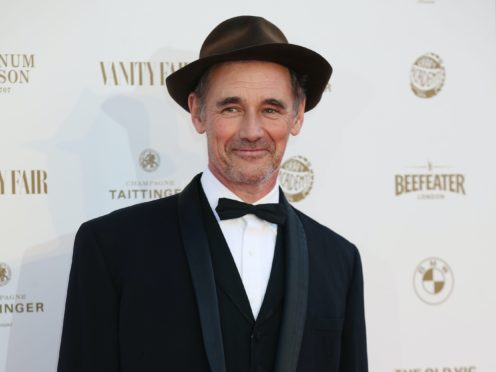Actor Sir Mark Rylance, Chic star Nile Rodgers and Pet Shop Boys singer Neil Tennant are among the creatives who have said that the rebuilding of the UK arts industry must be environmentally sustainable.
They are joined by more than 450 cultural organisations and individuals including musician Brian Eno, Maria Balshaw, director of The Tate, Frances Morris, director of Tate Modern, and Richard Mantle, general director of Opera North, calling for green strategies to be at the heart of the the Cultural Renewal Task Force, which was set up by the Government to help the recovery of the arts.
A letter to Culture Secretary Oliver Dowden said: “What we decide now will create the sustainable foundations for the future; we have a once-in-a-generation opportunity to build a resilient recovery plan that is fair and tackles the climate and ecological crisis with urgency. We cannot let this opportunity pass us by.
More than 400 organisations and individuals lend their support to endorse our #JustGreenCulture appeal sent to @OliverDowden and @DCMS
Find the supporters here: https://t.co/9uChxuiCtT
Add your name here: https://t.co/w8G552lsSd pic.twitter.com/bGUxtF6fZM
— Julie's Bicycle (@JuliesBicycle) June 22, 2020
“Before the pandemic the creative and cultural sector was contributing £111.7 billion to the UK economy – greater than the automotive, aerospace, life sciences, oil and gas industries combined – employing over two million people and growing at five times the rate of the economy as a whole.
“The sector is of national and international significance but not just to the economy; aside from soft power and tourism, we generate civic and community cohesion and well-being. Our track record in climate action is also of international significance.
“Thousands of artists and organisations from across the creative spectrum have been championing climate action for many years, not least because Arts Council England has undertaken the largest cultural programme of environmental literacy anywhere in the world, and is the first national funding body to make environmental requirements a condition of funding.
“Having already shown our commitment to environmental action we want the cultural recovery to be a fair, just and green recovery.”
We're calling on the Cultural Secretary to urgently implement A Just and Green Cultural Recovery with social and climate justice at its heart – will you support by endorsing and helping to spread the word?
Letter and actions here: https://t.co/6XrFEhmbwJ#JustGreenCulture 🌱
— Julie's Bicycle (@JuliesBicycle) June 16, 2020
The letter has been sent by the charity Julie’s Bicycle, which supports the creative community to act on climate change and environmental sustainability.
Alison Tickell, managing director of Julie’s Bicycle, said: “Government must do the right thing now and tackle both the climate crisis and systemic racism together.
“A just and green cultural recovery programme offers a once in a generation chance to do this.”
